Support New Zealand’s research priorities
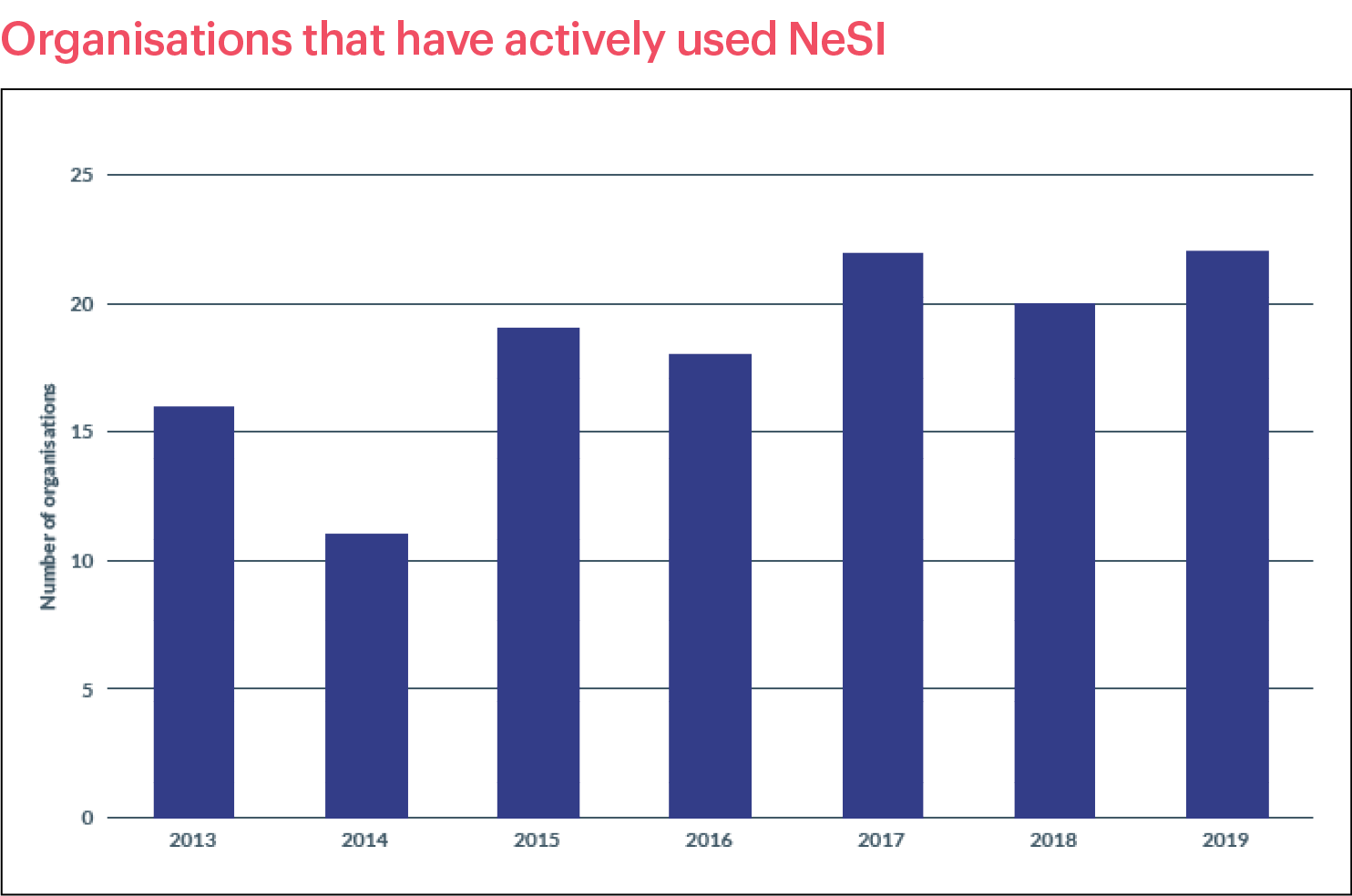
NeSI continues to meet a constantly increasing scale and variety of research needs, managing a steady progression of growth in infrastructure use as well as users.
Each year, NeSI gathers success stories from users and user communities to highlight the ways NeSI resources, support, and expertise delivered impact and benefit to the New Zealand research sector.
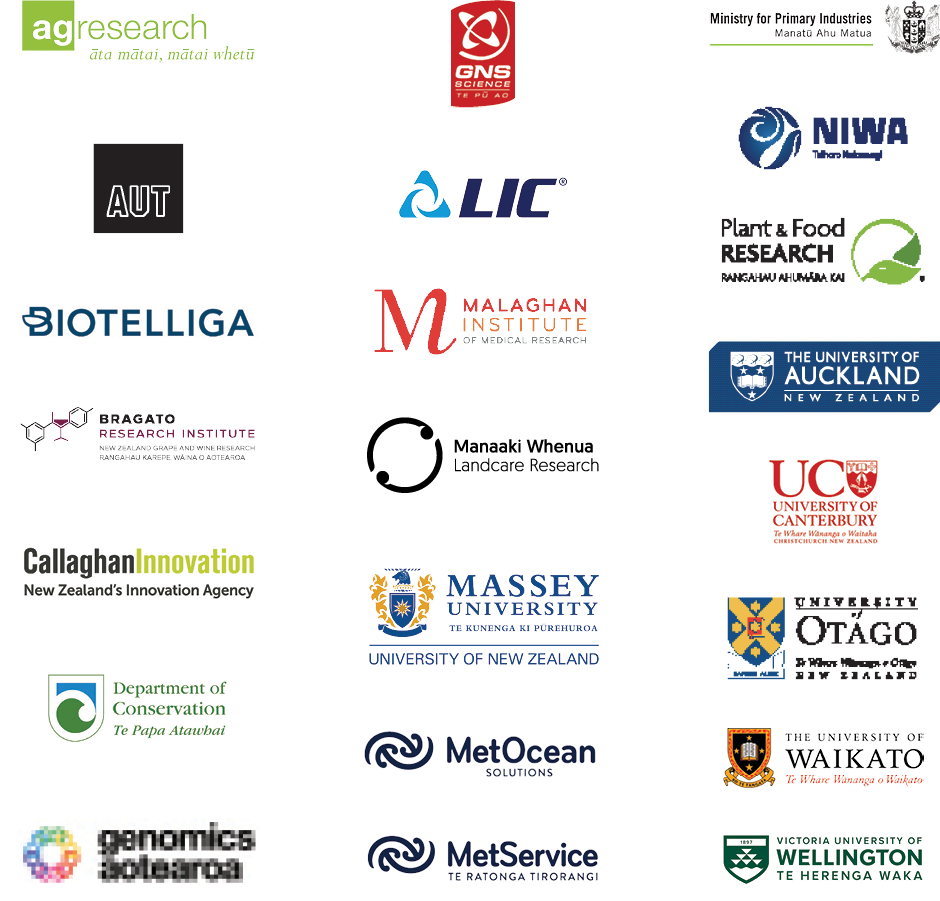
The case studies in 2019 profile researchers based at NeSI’s four collaborator institutions — the University of Auckland, University of Otago, Manaaki Whenua - Landcare Research, and NIWA — as well as researchers who work with Callaghan Innovation, Genomics Aotearoa, GNS Science, Waikato University, and partners within The Carpentries community.
The case studies were published on NeSI’s website, shared over social media, and used in conference presentations to showcase how NeSI meets a diverse scale and variety of research needs.
We invite you to read these and other case studies here.
Advancing national research collaborations
NeSI’s platforms and services support some of New Zealand’s largest national research collaborations, including QuakeCoRE, the Deep South National Challenge, and Genomics Aotearoa.
In addition to advancing research efforts on a local scale, NeSI’s support of these large-scale national projects also strengthens New Zealand researchers’ connections in the global research community, through publications of new and valuable insights in their research fields.
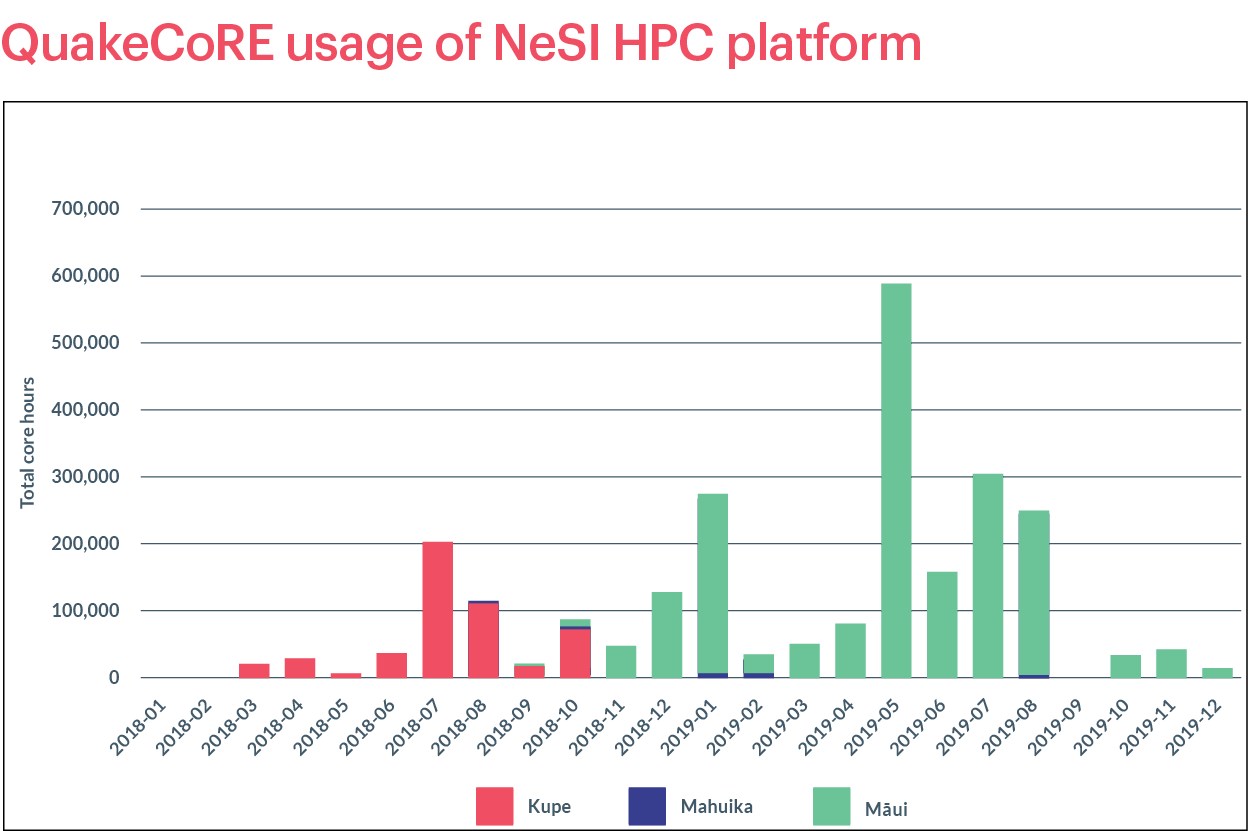
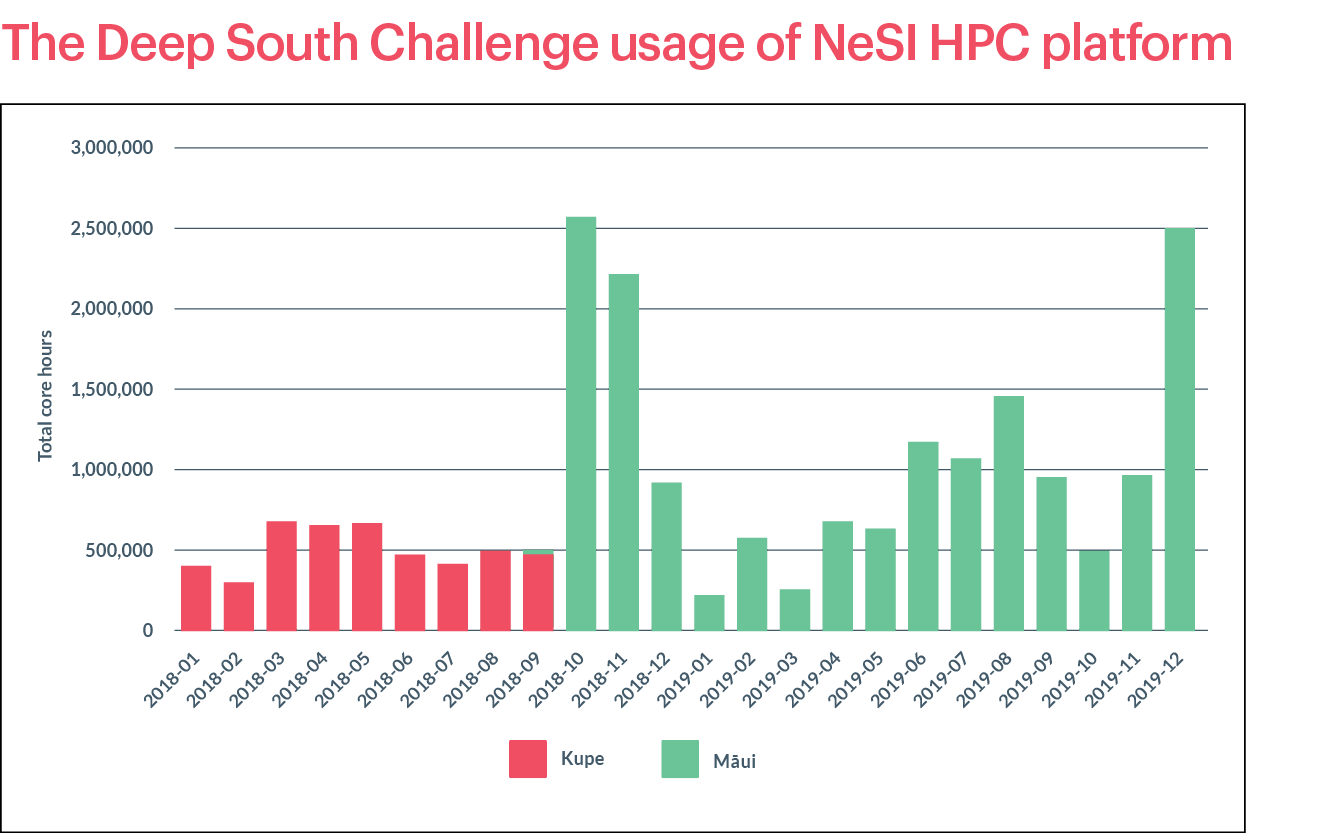
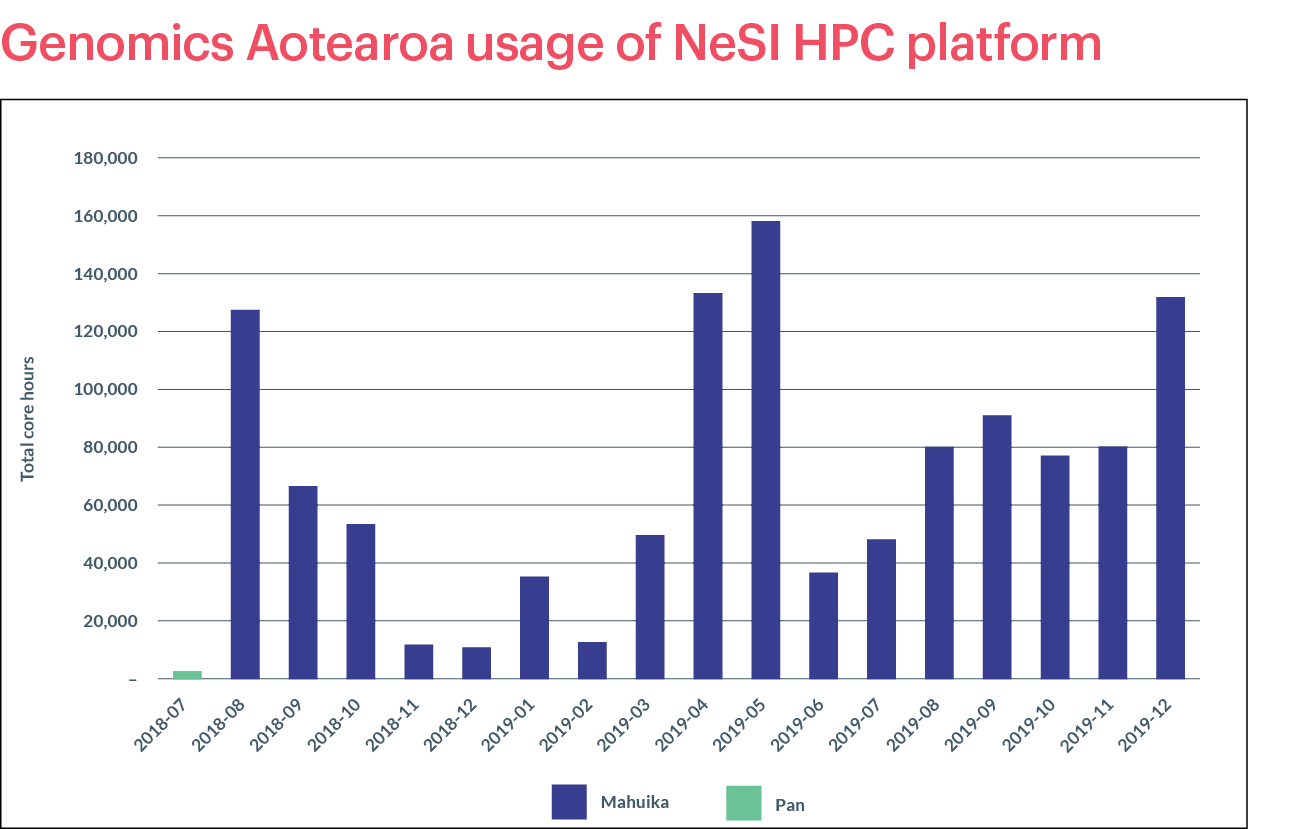
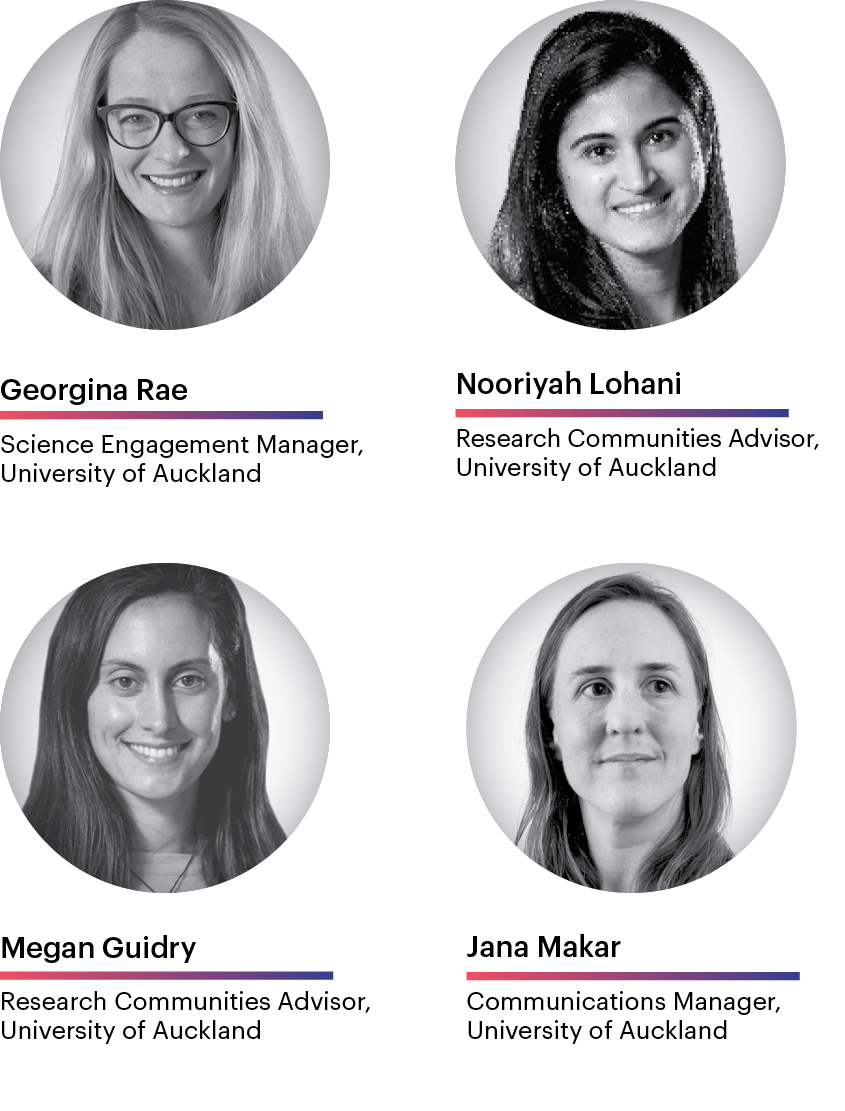 Attribution: Supporting a diverse research sector
Attribution: Supporting a diverse research sector

Throughout 2019, NeSI supported use across a broad range of research domains. This was due in part to increased training activities targeted at introductory and ‘getting started’ levels to encourage researchers across all domains to scale their projects onto larger, more powerful computing systems. Targeted outreach efforts built new connections with Engineering research communities at the University of Waikato and University of Auckland, and new advanced training content was developed with focuses on genomics research skills, machine learning approaches, and tools for accessing or sharing large data sets.
Within the broader research sector, Nooriyah Lohani, NeSI’s Research Communities Advisor, led and contributed to a range of local and international Research Software Engineer (RSE) community-building and knowledge-sharing initiatives. She worked with Australian and UK representatives to coordinate NZ participation in the International RSE Survey, and she analysed and presented the NZ findings of that survey across a number of local and regional channels (ARDC Tech talk webinar – February 2019, eResearch NZ – February 2019, Science Coding Conference – September 2019). In September 2019, Nooriyah was named as one of six inaugural members of a new steering committee to guide and better support RSEs in New Zealand and Australia, and she is now co-Chair of that Committee.
Also, Jana Makar, NeSI’s Communications Manager, has been coordinating a collaboration with counterparts in Australia to establish an Australasia Chapter of the global organisation Women in HPC. She and Megan Guidry, NeSI Research Communities Advisor, kicked off the initiative by hosting a Birds-of-a-Feather session at eResearch Australasia 2019 and since then have been working with a group of core participants from that BoF to advance the idea. Alongside those efforts, NeSI has explored other initiatives to recognise and encourage diversity and inclusion in New Zealand science and research, such as:
• Joining a Diversity and Inclusion Working Group created by Australasian eResearch Organisations (AeRO).
• Launching a WHPC working group, with representation from NeSI, AeRO, Pawsey Supercomputing Centre, Monash University, and NCI Australia.
During 2019, NeSI also continued its successful practice of hosting valuable community-building events that offer New Zealand's research communities opportunities to connect with colleagues, learn from each other, share best practice, and spark new collaborations. In February, more than 150 leaders and innovators from research communities across New Zealand and overseas gathered in Auckland for eResearch NZ’s 10th anniversary event. NeSI's Science Engagement Manager Georgina Rae was Chair of the Organsing Committee, and the event was co-hosted by NeSI and REANNZ, and sponsored by Microsoft, Cray, Dell / EMC, Figshare, and Catalyst Cloud. Themed “People Powered Research”, the event featured talks on indigenous data, sensitive data, digital preservation, research data management, and eResearch workforce development.
In September 2019, NeSI hosted its largest ever Science Coding Conference, with 60 attendees including many new faces and a growing diversity of representation from across New Zealand. Hosted in Christchurch, the event featured discussions around key drivers of code development and applications supporting New Zealand research, including possibilities around machine learning and data science.
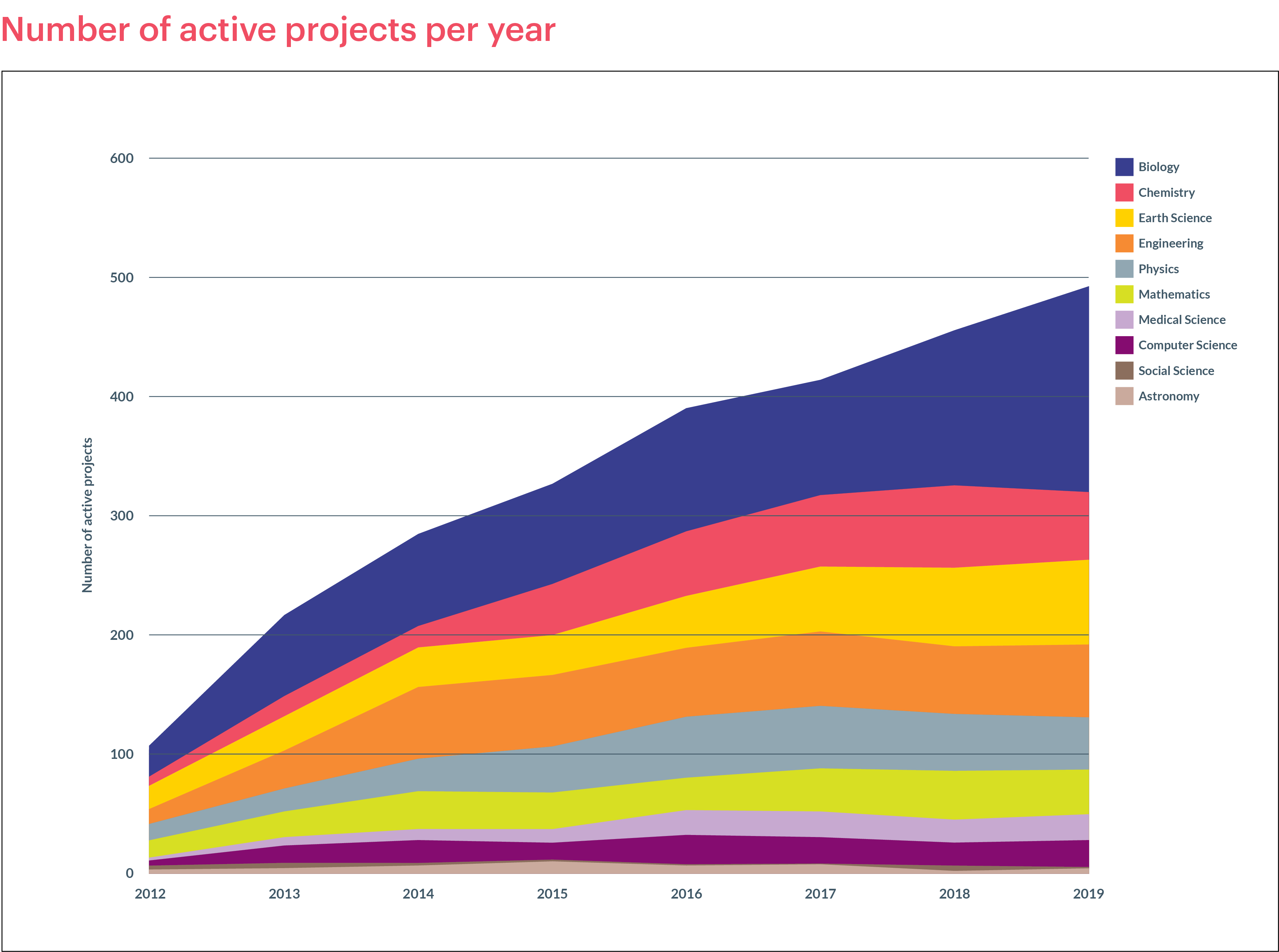
Strengthening international collaborations
During 2019, NeSI team members attended and presented at a number of Trans-Tasman and overseas events:
July 2019
- NeSI Engagement Manager Georgina Rae travelled to Chicago, IL to present at the annual Practices and Experiences in Advanced Research Computing (PEARC) Conference. Following the conference, she met with members of the Argonne National Laboratory team to discuss their approach to data science and learning, user support, training, user experience, and industry engagement.
- NeSI Training Coordinator, Megan Guidry, attended the Australian eResearch Skilled Workforce Summit, to discuss the skills needed to survive and thrive in this new world of data-enabled research.
September 2019
- NeSI team member Alexander Pletzer was a keynote at OpenMPCon, sharing an overview of NeSI’s HPC platform and highlighting some of the ways OpenMP is used in research in New Zealand.
October 2019
- Multiple members of the NeSI team travelled to Brisbane, Australia for 2019 eResearch Australasia, hosting sessions and participating on panels on topics of research community-building, digital skills training, and research data management.
November 2019
- NeSI partnered with NCI Australia and the Pawsey Supercomputing Centre to host the Australasian Leadership Computing Symposium. NeSI team member Wolfgang Hayek delivered a plenary presentation on NeSI and its Consultancy service, and NeSI team member Alex Pletzer presented in the programme’s climate weather stream.
- Multiple NeSI team members attended Supercomputing 2019 in Denver, CO. Valuable knowledge was gathered in areas of cloud and distributed computing, data analytics, visualization, machine learning and HPC.





